Set Review ➟ 71814 LEGO® Ninjago Dragons Rising™ Tournament Temple City
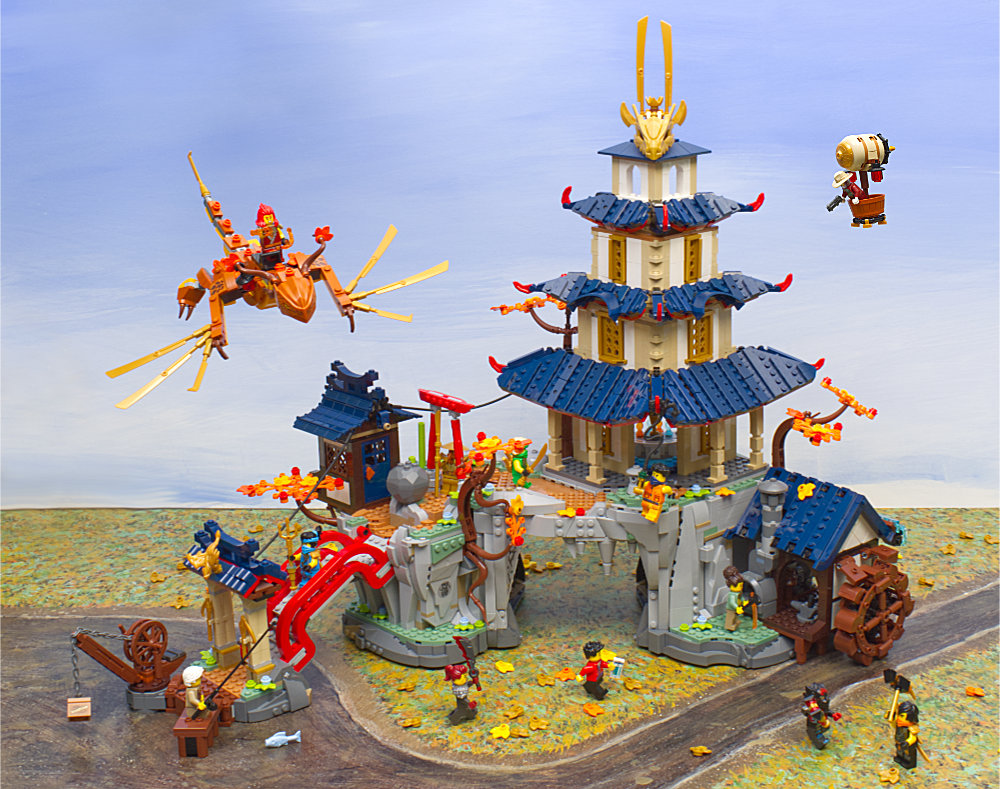
Stating what should be obvious to anyone who can see clearly, this is an aesthetically beautiful set. There is color harmony and an interesting composition. It also has an interesting set of elements including caves, buildings, and the expected Ninjago hidden bits and booby traps. What it also has is a bunch of “well, what’s this about” moments.
The very first “well, what’s this about” moment is opening the box. I haven’t seen a LEGO box open like this since the 1970’s—the box top comes off completely. The tray bottom is absolutely packed with paper baggies and no wasted space. A large round of applause to LEGO.
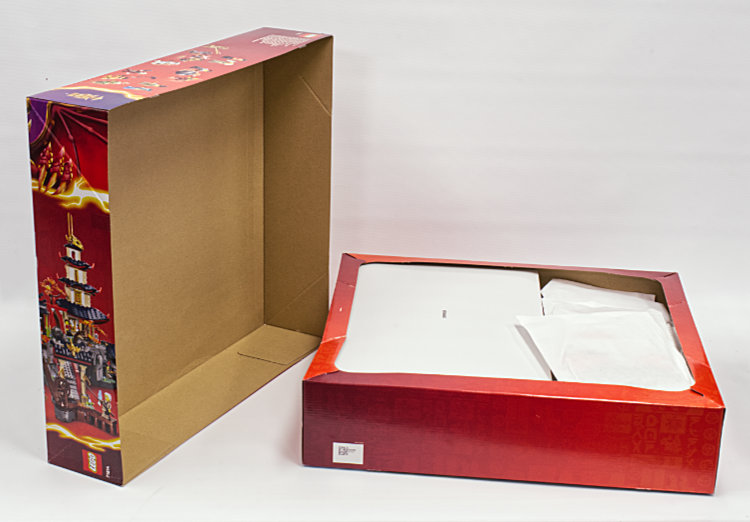
Before diving into specifics know that this is a build with a variety of build techniques that while not necessarily unusual are also not necessarily seen all that frequently. One of them is the use of axles into technic bricks, set flush and eventually covered…meaning this is not going to come apart in reverse sequence of assembly. Once those axles get set fully set into the build with no way to easily or immediately extract them from either side of the assembly. On a positive note, it makes for a strong assembly. On a negative note it makes for a strong assembly.
Washtub Blimp
Getting now into specific elements to review, there is a washtub blimp, a medium sized dragon, minifigures, and the temple city.
A small standalone build is the washtub blimp. I honestly didn’t know what this thing was supposed to be, and I wondered “well, what's this about?” To me it looked like a keg on a stick with a tub to catch the drippings. Then I saw on the box art that it was a flying device of sorts. Oh. So we have seen a similar contraption for Pigsy in a Monkie Kid set. So that’s what it’s about.
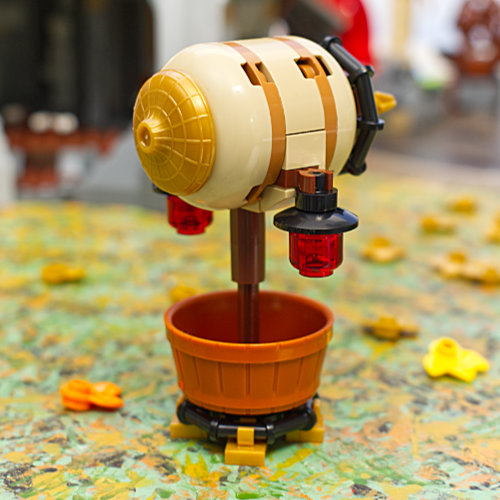
Given it’s intended purpose it’s sad to state that the minifigures don’t fit the washtub all that well. They can’t sit and they need to bend at the waist to fit standing. There is no stud inside the tub that you can attach a leg to and the figures end up being top heavy and simply want to fall out. The Pigsy version works better with its taller center post and Pigsy’s shorter legs allowing you to wedge Pigsy in.
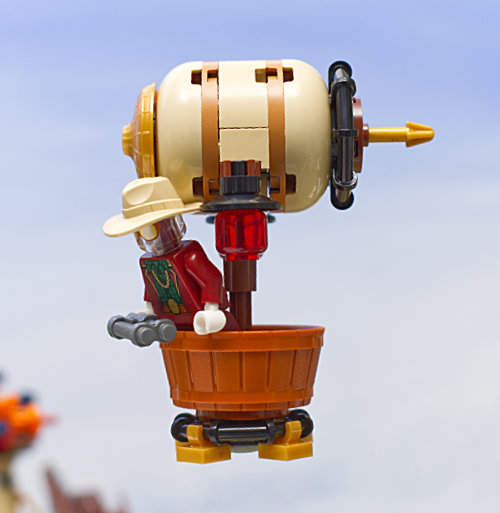
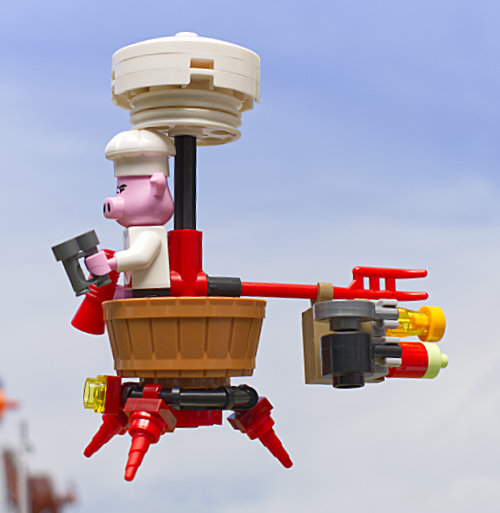
I was able to add a technic brick into the tub and attach a figure’s legs to the brick. This cured the figure from falling out of the tub, but still required the figure to bend all the way at the waist to fit because of the short post. That said, I’m inclined to add a tap to the keg and set it up as a refreshment stand for the tournament competitors.
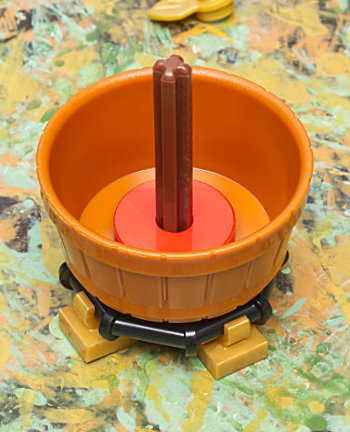
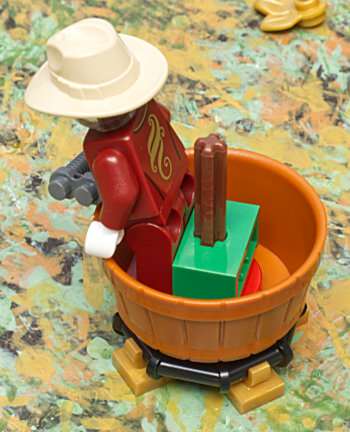
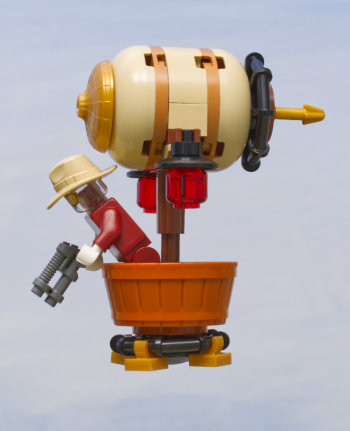
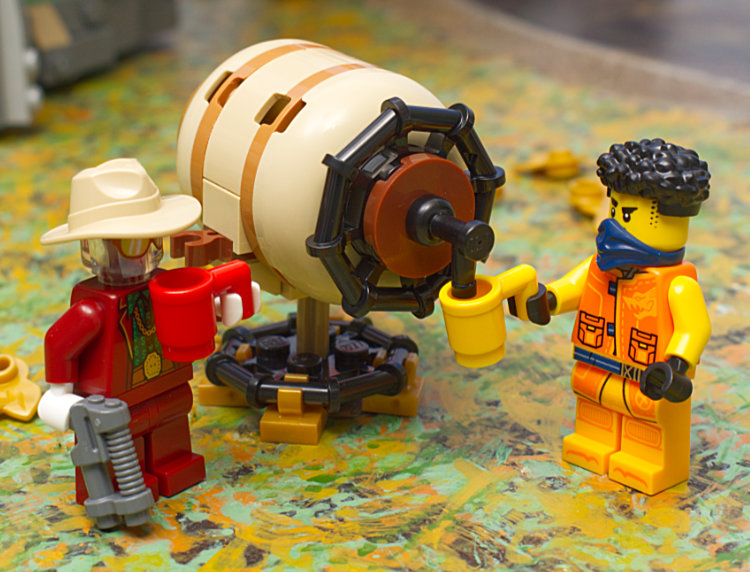
Dragon
This is possibly the most articulated dragon I have seen LEGO produce. Except for the head it is brick built out of mostly common parts. It has four points of articulation in the tail, articulation at the hips, ankles, shoulders, fingers, horns, the blade “feathers”, two at the neck, and the head…which is connected to the neck by a technic friction pin…can be repositioned, although in limited positions.
The many points of articulation make for a very expressive character. The added floral touches provide a touch of fantastic charm. There is also a saddle for a minifigure rider.
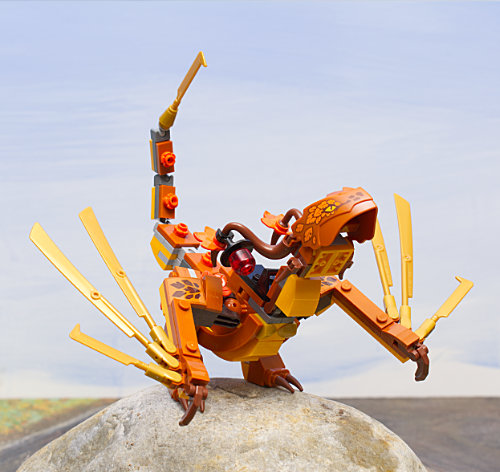
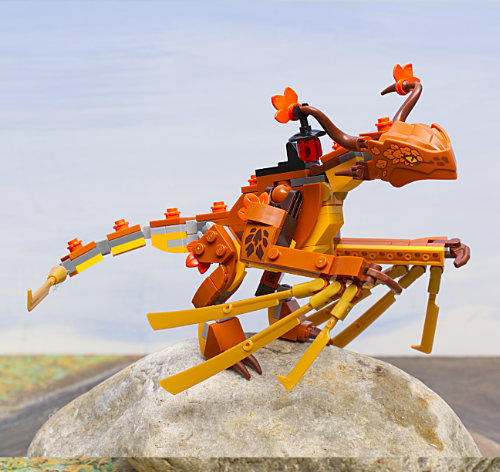
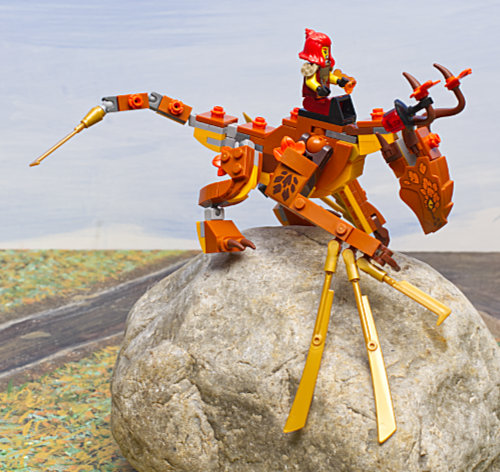
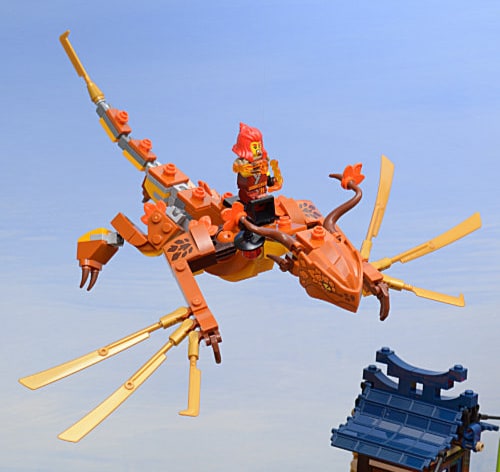
Minifigures
Of note is that there are no duplicate figures in this set and the companion 71818 Battle Arena set.


Left to right: Jordana, Lord Ras, Arin, Bleckt, Nya, Temple Guard, Blacksmith


Left to right: Mr. Pale, Wyldfyre, Zane, Lloyd, Roby, Cole
Lloyd has new torso and legs designs. His part number 69562 hair piece has a bright green headband and was new earlier in 2024.
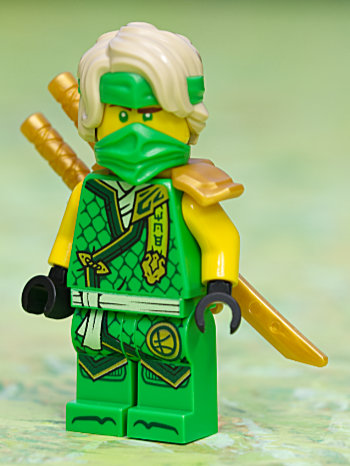
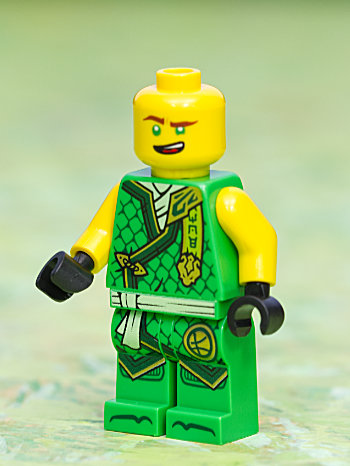
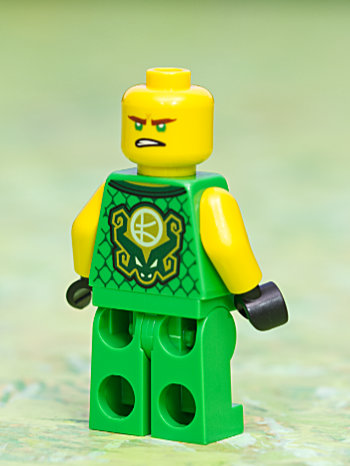
Cole has new torso and legs designs. His hair piece, even with the addition of the neckerchief as a spacer hangs low enough in the back to bump into a kitana in the holder, so hair placement in some situations may be impacted. Without a kitana in the top holder position, the hair piece clears the holder and the assembly behaves as expected.
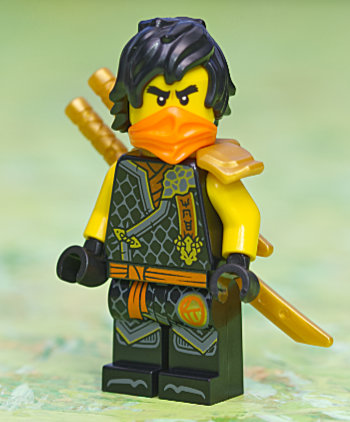
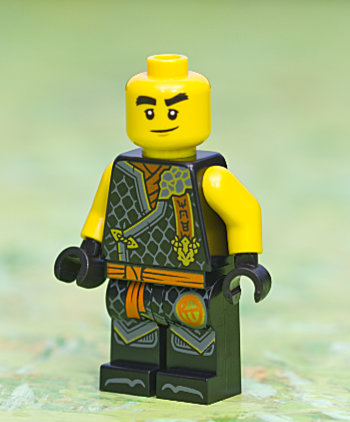
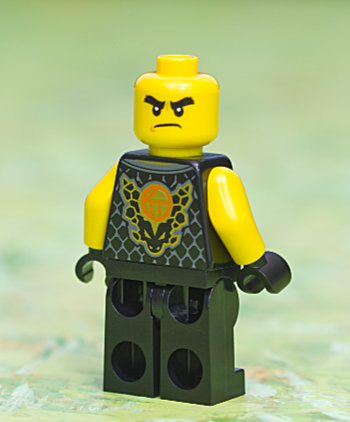
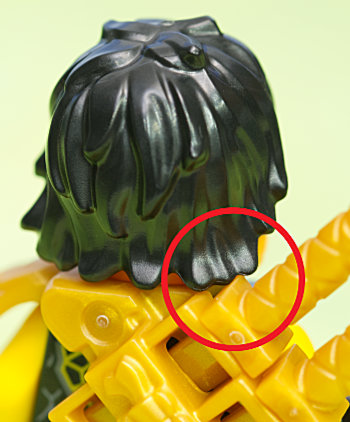
Zane has new torso and legs designs.
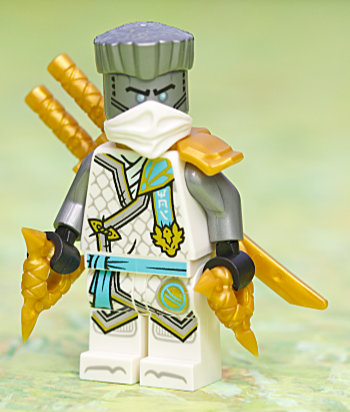
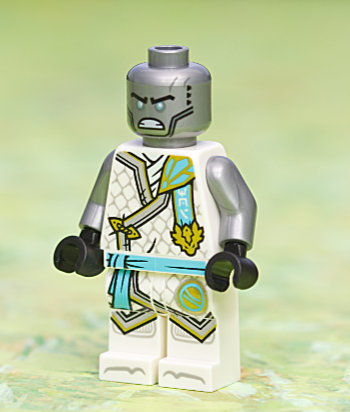
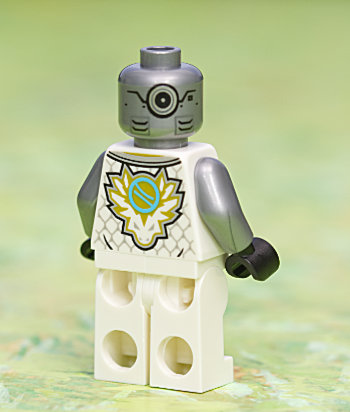
Nya has new torso and legs designs, also available in set 71820.
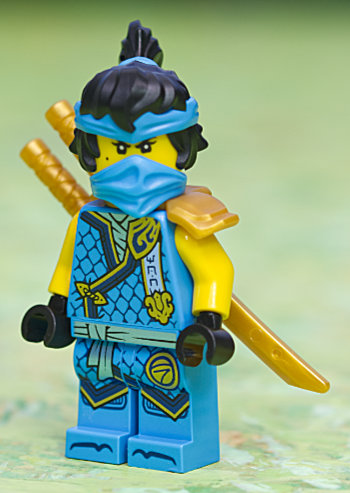
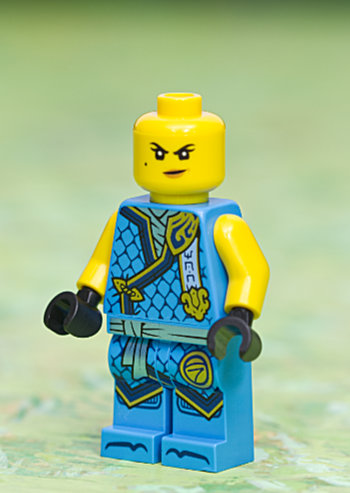
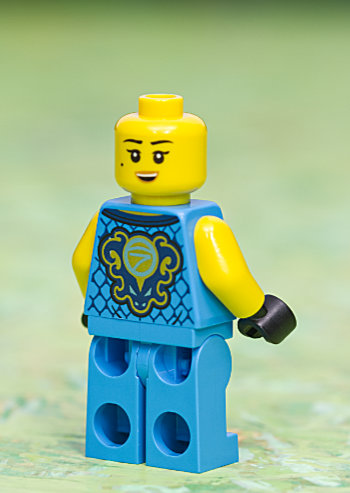
Arin has new torso and legs designs for this wave.
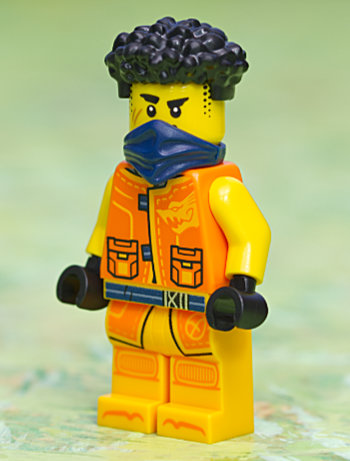
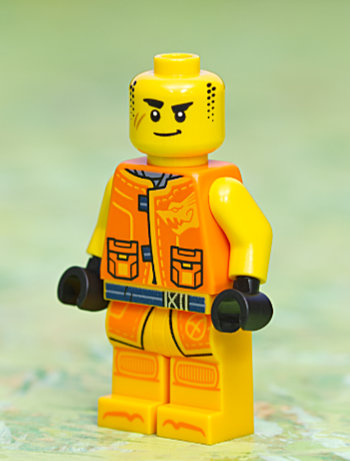
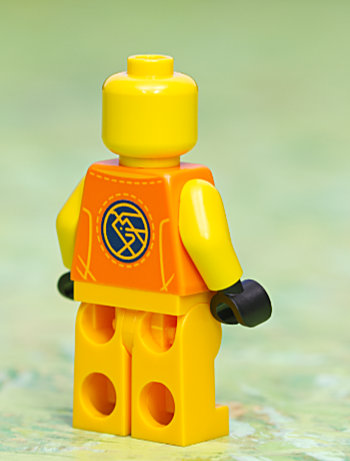
Wyldfyre in this set is identical to the version in sets 71822, 71812, and 71815. She is somewhat limited in expression as her shoulder pads limit her arm movement and effectively prevent her head from turning as they interfere with the hair piece. The shoulder pads look cool, but removing them will definitely increase the pose options.
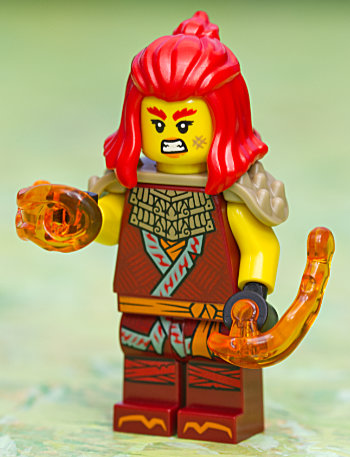
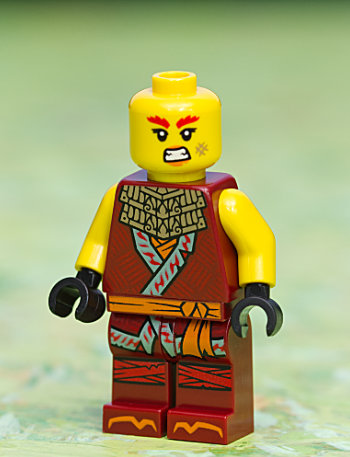
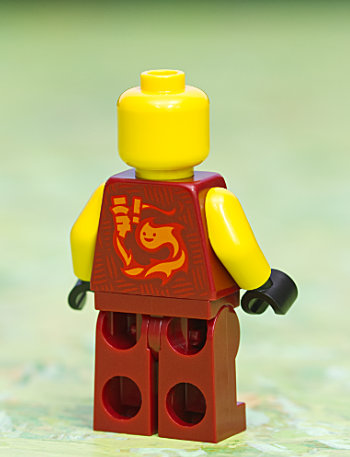
This version of Lord Ras has all new decorations. He picks up the earlier head mold but with new paint.
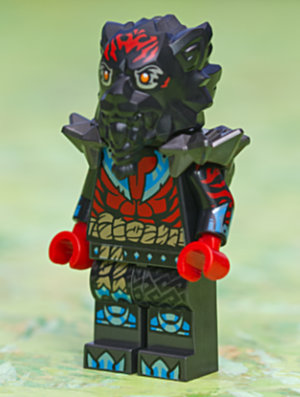
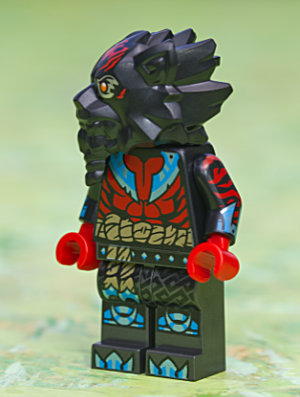
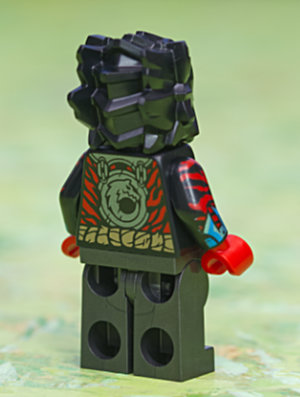
Jordana has a new torso and legs prints while picking up earlier head and hair pieces.
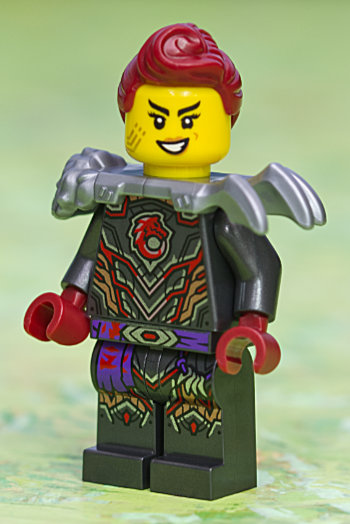
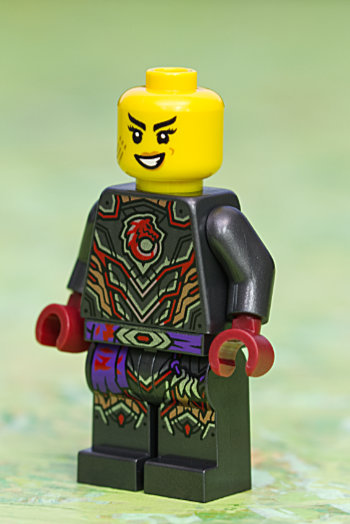
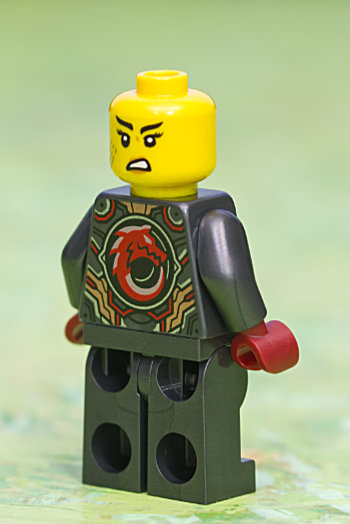
Mr. Pale is a first-time figure, all new except his hat.
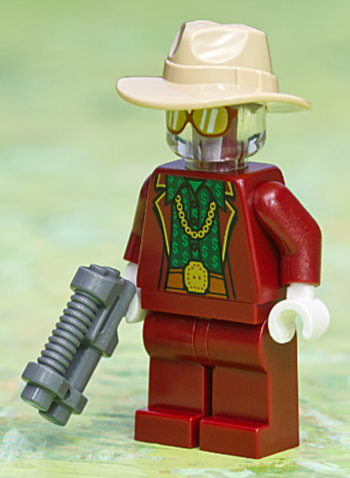
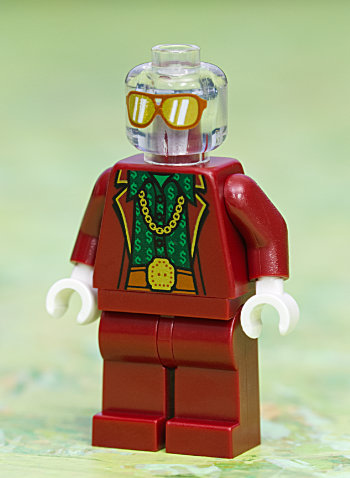
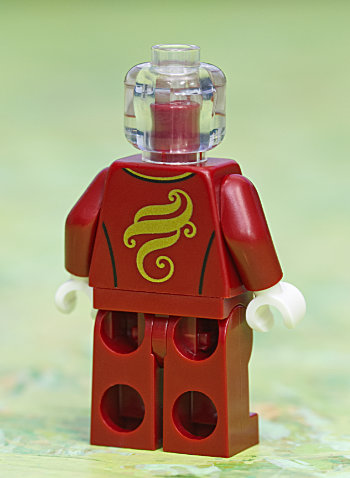
Temple Guard is a first-time figure. It is the only figure in the set with new head pattern printed on two sides.
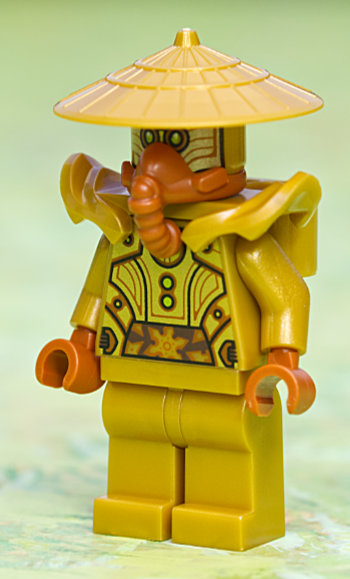
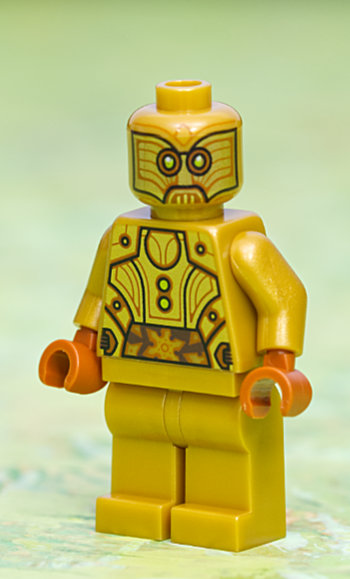
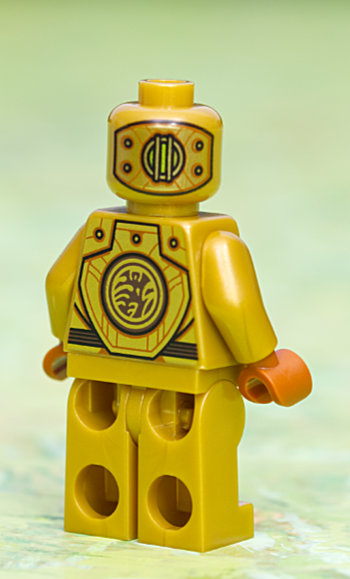
Bleckt is a first-time figure with new face and torso prints.
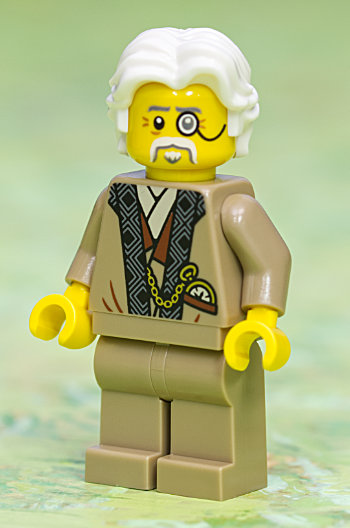
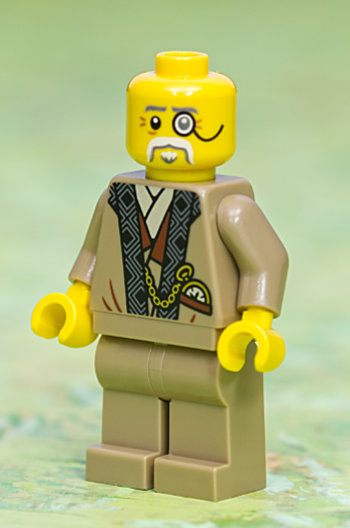
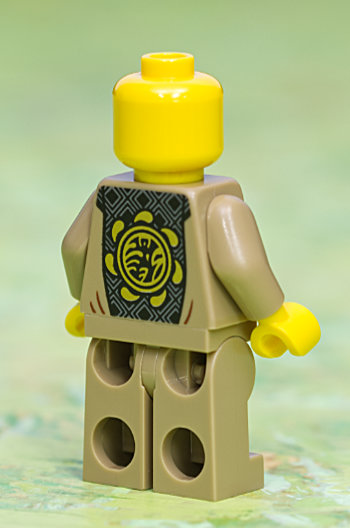
Blacksmith is comprised of parts that have been seen before.
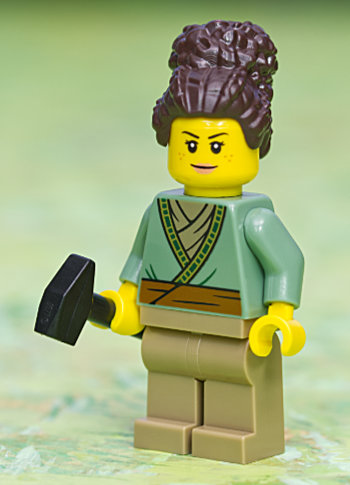
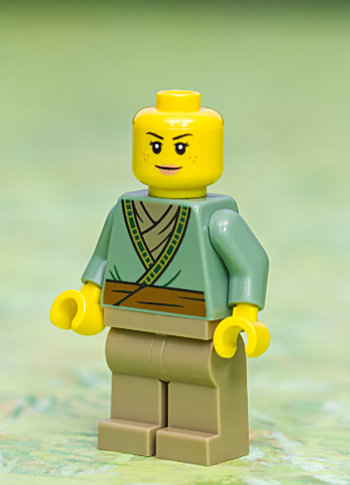
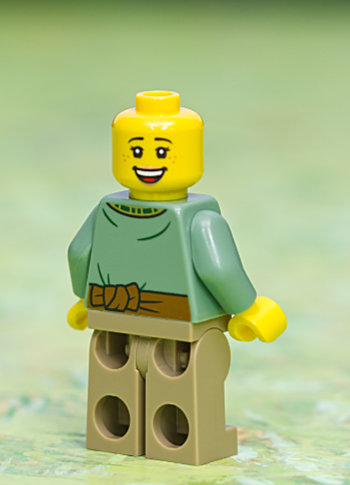
Roby is a first-time figure with a new torso print.
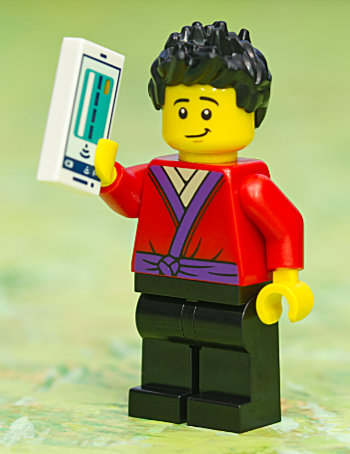
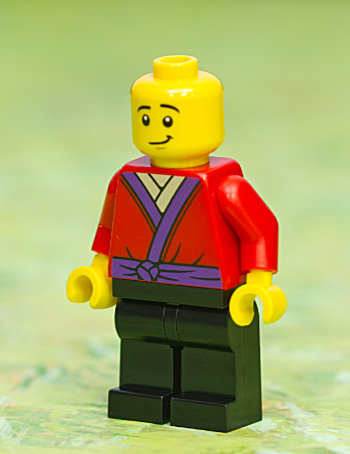
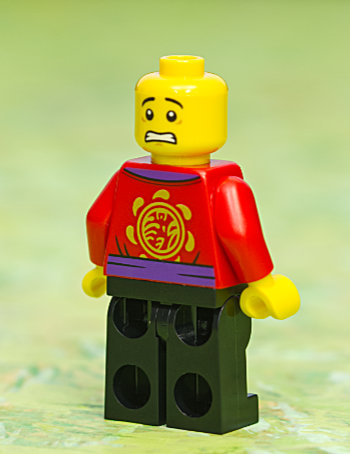
Temple Tournament City
Well, what's this about? City? Tournament temple, sure. But, city? I don’t think so.
Marketing prejudices aside, the “city” is a temple built above some caves with a few adjacent out houses (not to be confused with outhouses)…and that joke probably won’t translate into Spanish.
Proceeding from left to right in the model we start with a little island. On the island sits a gateway and has two attached docks. One dock is a standard flat boat dock. The other has a crane hoist of sorts that is capable of rotating 360 degrees at the base.
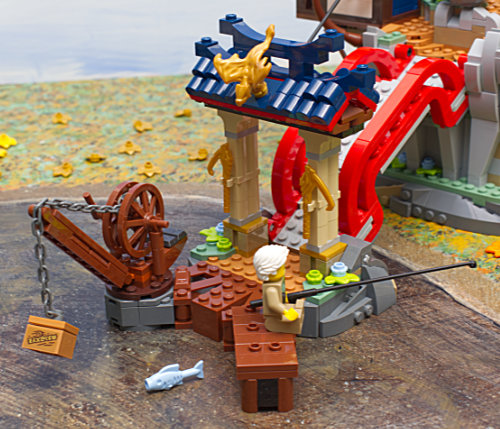
The hoist has an arm attached with a toothed hinge joint which allows for up and down movement. Attached to the base is a winch wheel with a chain which runs over the lift arm. Turning the handle will wrap the chain around the wheel. There are a couple wagon wheels attached either side of the winch. They are loose and spin freely, unattached to the winch mechanism proper, and I assume simply serve as a guide to keep the chain in place.
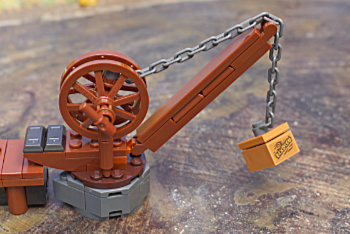
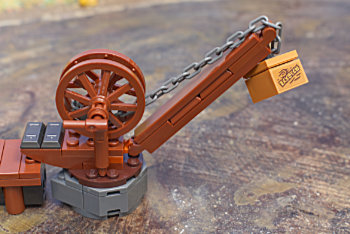
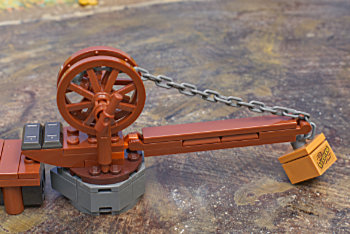
Then, well, what’s this about? The whole thing kind of begs the question as to why there is a crane hoist on a dock. There is no boat included here or in any of the other sets in this series as far as I can tell. Why is a box being dangled over a pond? Does the box contains very very heavy fish bait?
Moving along, the docks separate from the gateway to reveal pin-and-hole attachment points for the companion Battle Arena set modules.
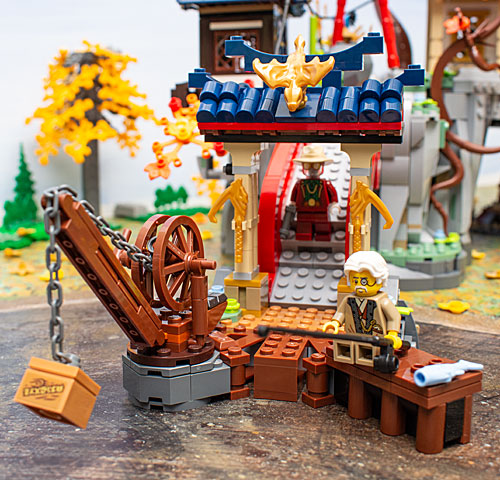
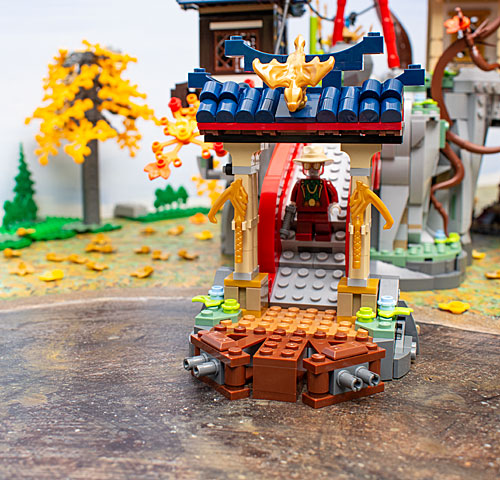
Connecting the little island to the main model is a bridge. When assembling I thought maybe the bridge would be able to move up and down to connect to the island, but it doesn’t. It makes sense that it is fixed because without a baseplate or something to anchor the little island and the main model in place, the island could float away leaving us with a potential bridge to nowhere and an ongoing assembly alignment issue.
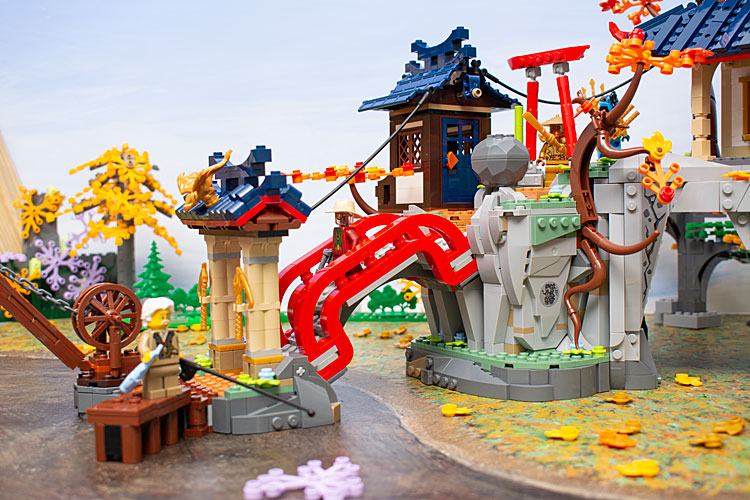
Given the incline of the bridge, one might expect there to be steps, but no. There are a couple two-plate-high steps on either end, but the main part of the bridge is a plate set on an incline. Figures do attach easily to it, though, by simply bending back or forward one leg.
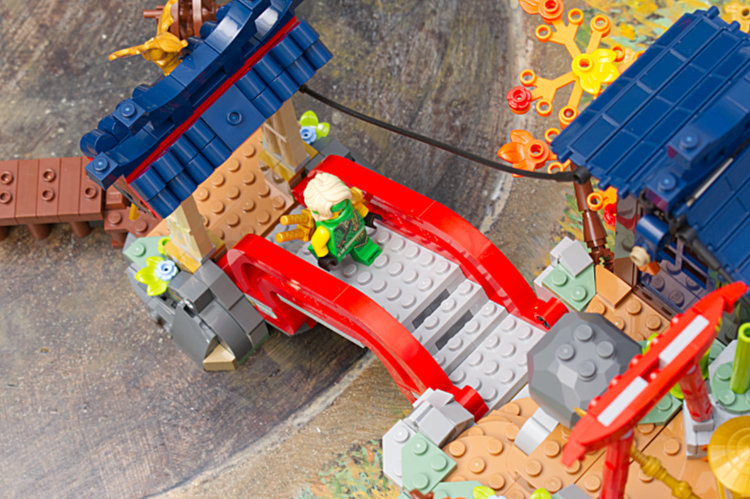
The bridge end opposite the island connects to a rock outcropping. This section of the model has a few features. The base section has a panel that pops off to reveal a hidden sword. The pop off is effected by pressing a portion of the opposite wall. In another “what’s this about” moment, the pop off mechanism is completely removable from the wall. Usually there is some sort of internal stop to prevent this from happening.
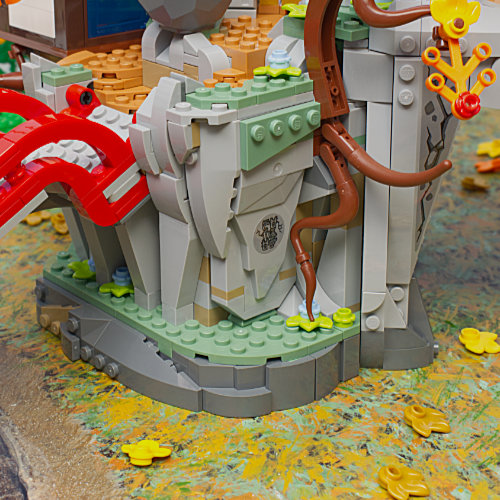
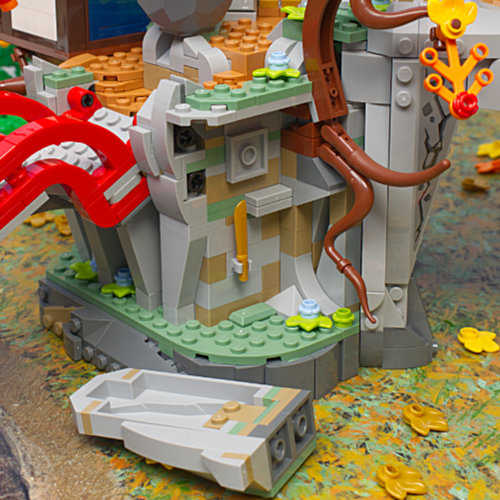
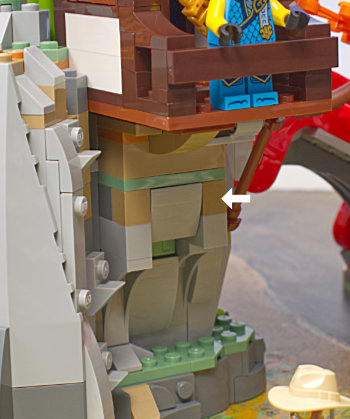
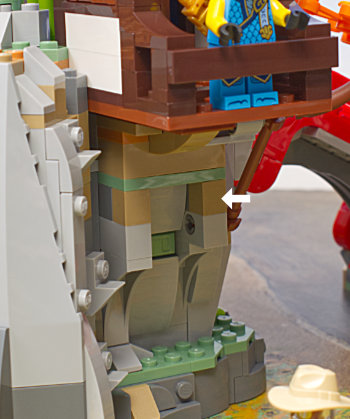
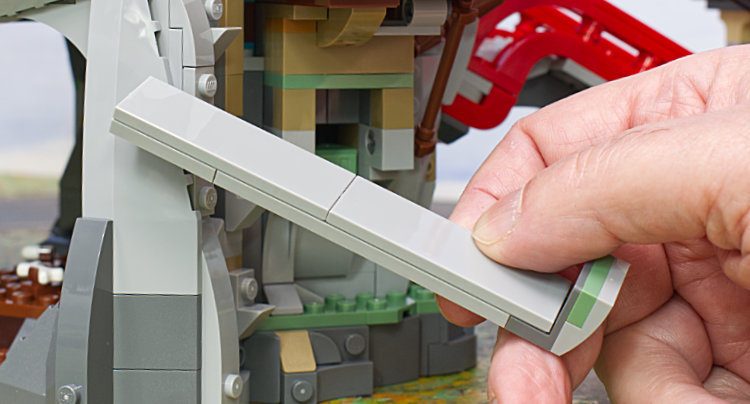
Hidden behind a couple removable curved slopes at the base bottom is the final pin-and-hole connection point for a tournament arena module. It is a little surprising given the size of this model that there are only the three connection points for arena modules. In the what’s this about department, also worth noting is that the arena’s battle floor module and the dock ends use the part 53540 1x2 brick with double snap pins—whose pins are not removable—which means that connection options between the larger model and smaller modules are limited to a handful of potential configurations unless you want to swap out some parts.
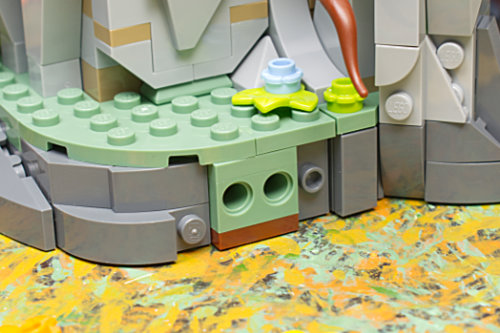
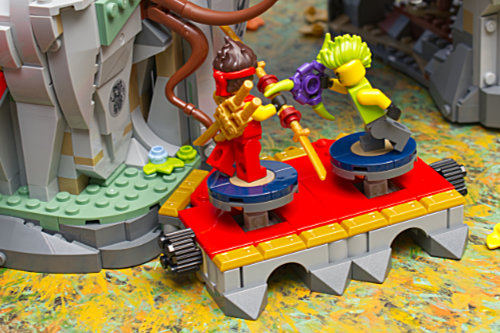
At the top of the bridge sits a boulder. It is assumed that this is a temple defense feature meant to be rolled down the bridge to squash any potential invaders. There is no lever or mechanism that moves the boulder off its place. Ultimately this boulder is little threat. The design of the bridge at the top end is such that it creates a pocket, and instead of the boulder rolling down the bridge it just falls into the depression and sits there. Various attempts were tried to get the boulder to roll down the bridge from the boulder’s resting place, but it just wasn’t happening.
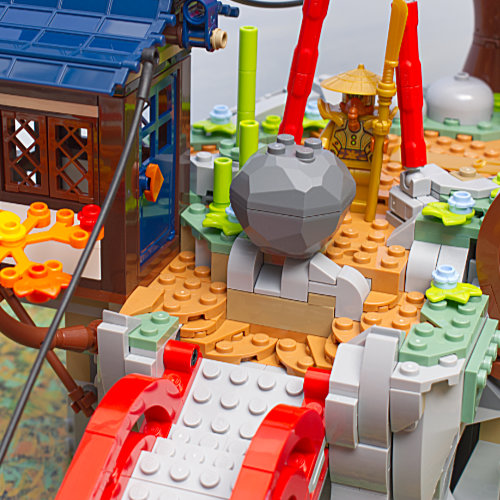
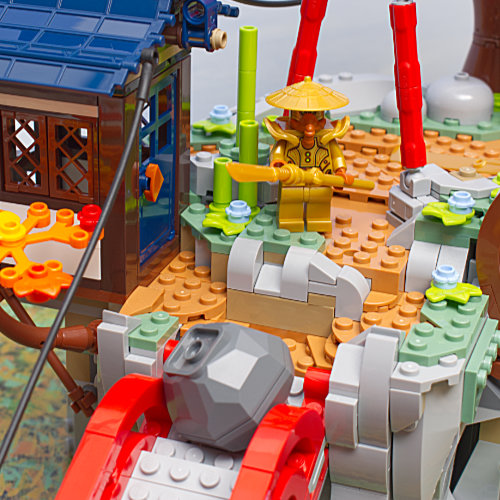
Next to the boulder is a guard house which makes for a visual treat. The door is not able to open fully due to the adjacent landscape design. A minifigure can squeeze through the opening provided the figure is not encumbered with weapons that increase the figure’s width wider than four bricks. The roof of the guard house is removable, but this process is encumbered by the cables that are attached to the roof. So what’s this about? Getting a figure into the building is a pain.
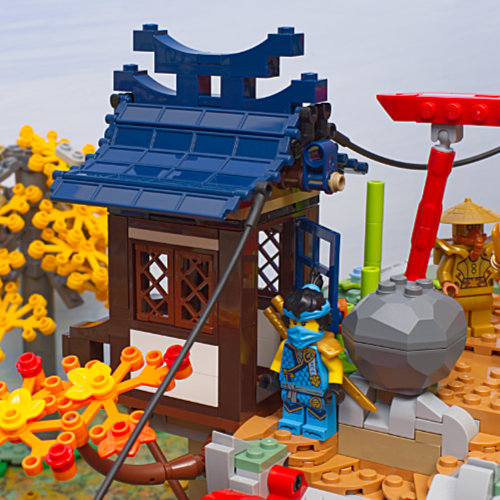
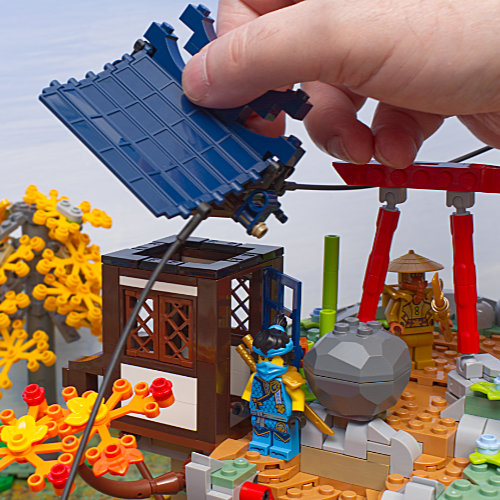
The guard house does have a nice porch so the guard can view the back yard. The house sits on a platform and is held in place by only a few studs and is removable with the caveat of the aforementioned roof cables.
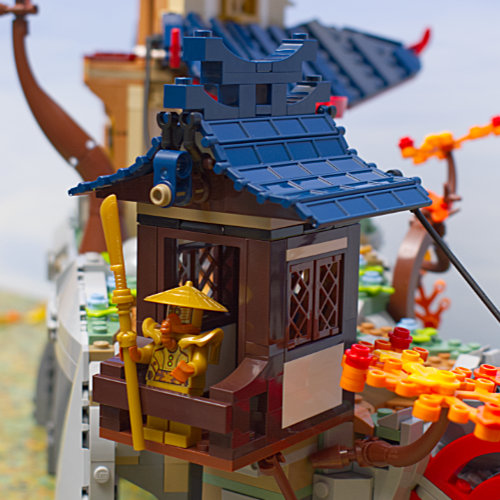
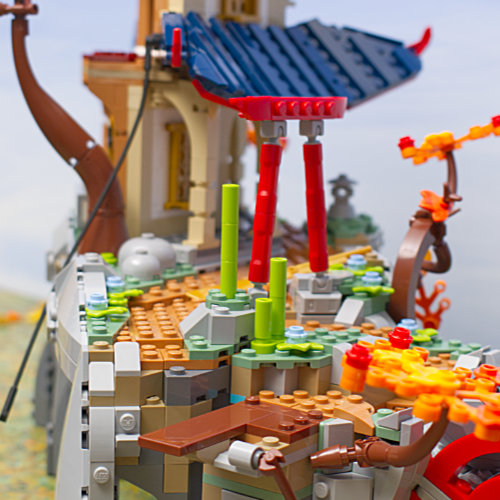
Situated over the front cave opening is a little pagoda sculpture that is a hidden booby trap button. Press the pagoda and stalactites will drop from the cave ceiling.
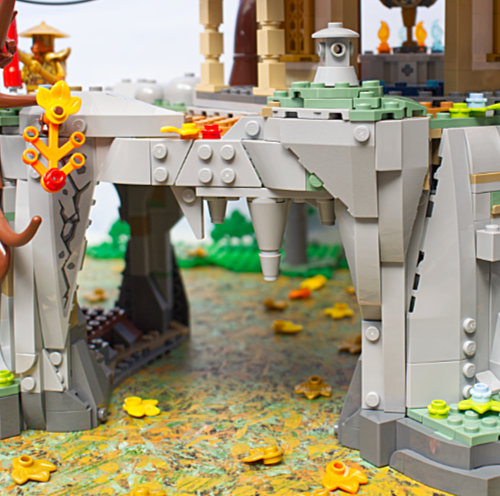
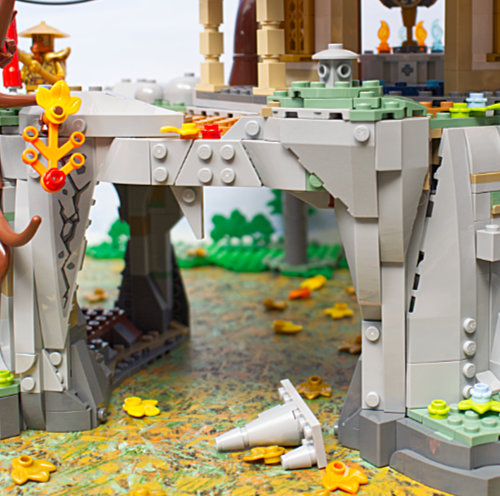
The temple is a four story structure crowned with a dragon’s head. Each of the top three stories is a removable module. The roof panels and interiors are nicely detailed.
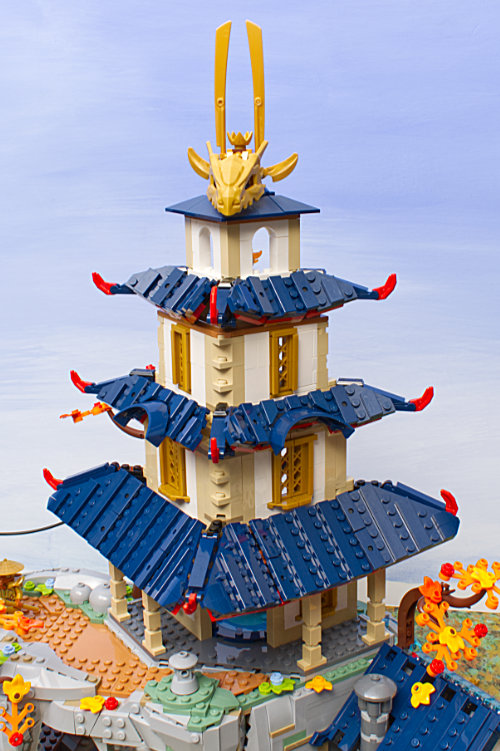
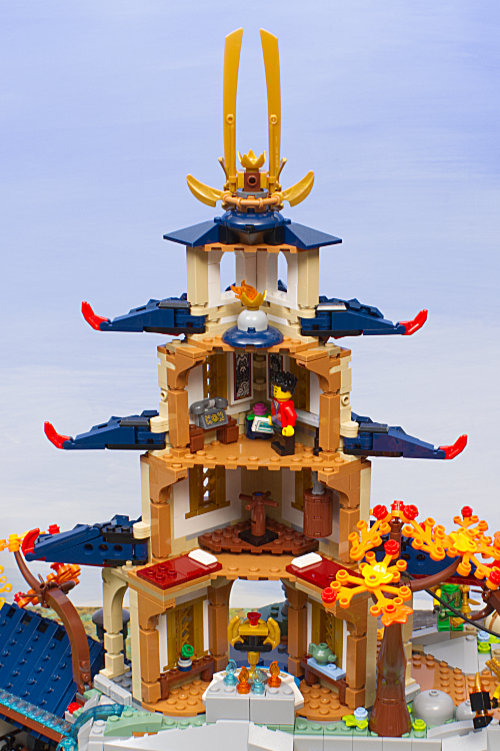
The ground floor of the temple houses a trophy.
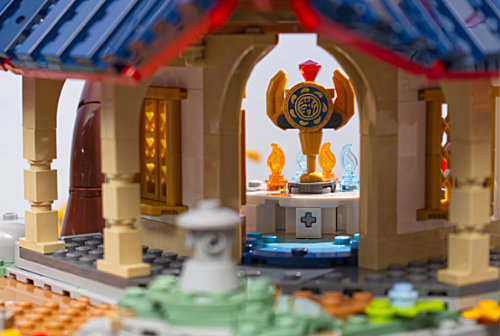
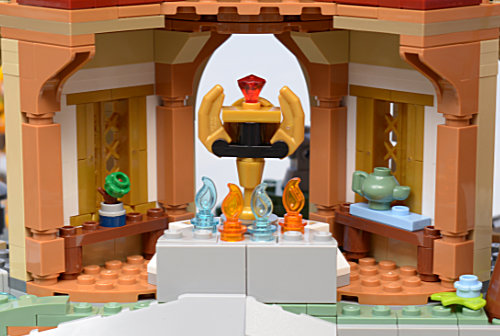
The second floor of the temple is the dojo where you can take a nap if your partner is not beating on the wing chun or the heavy bag.
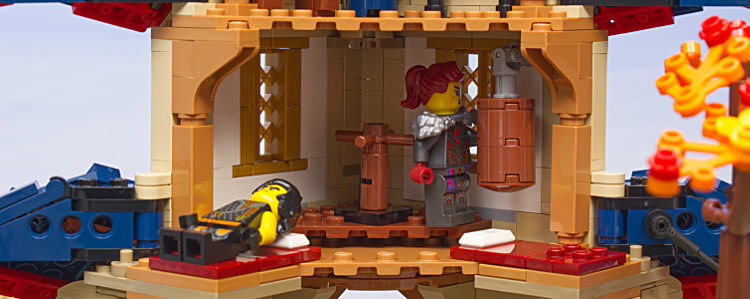
The third floor of the temple has a couple portraits and a…get this…rotary dial land line phone. (It’s apparently an old temple.) The requisite accompanying phone book is not to be found.
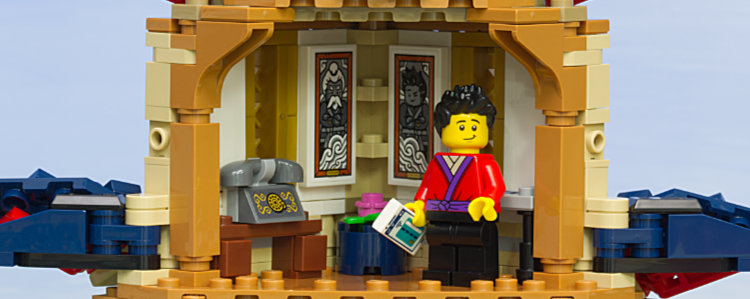
And what's this about? We have a cable that goes from the temple to the guard house to the docks, but there’s no phone in the guard house or at the docks. To borrow a phrase: “Who you gonna call?”
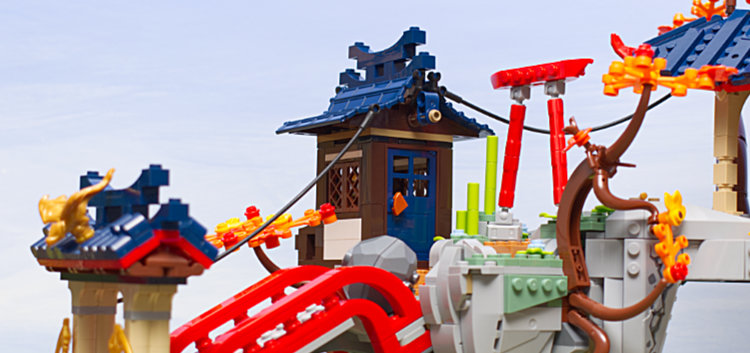
The top floor of the temple is home to a beacon fire.
The cave areas have statuary, a shrine, a meal in progress, and remnants of a meal or meals finished.
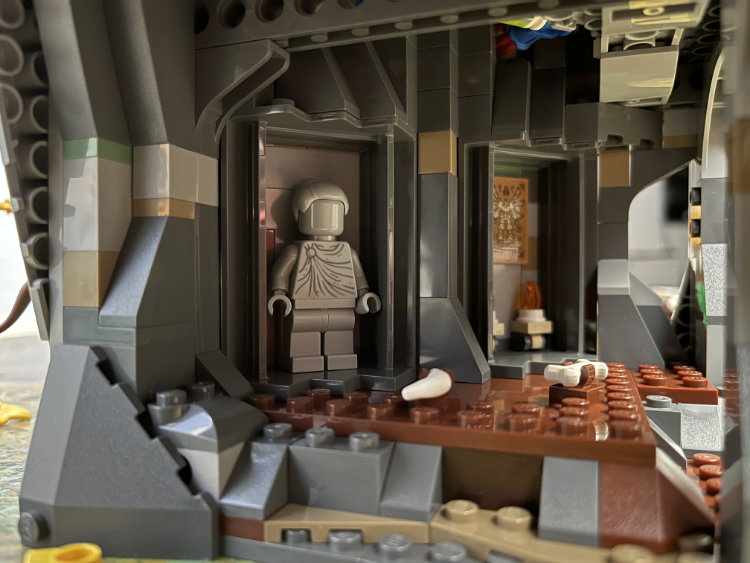
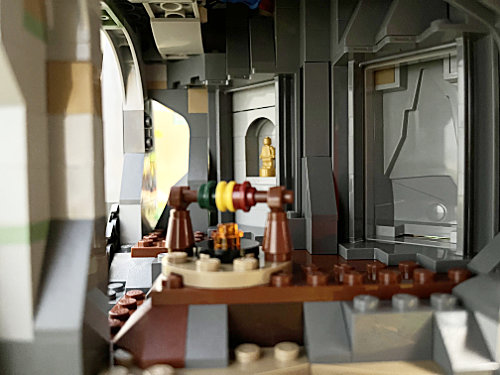
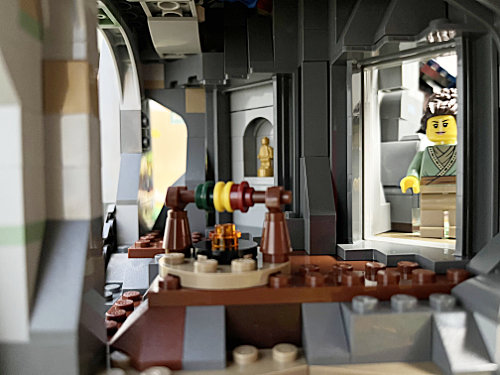
Finally we get to the blacksmith’s shop. And what a shop it is! The blacksmith is outside with her glowing hot steel coming out of a too-small furnace. Adjacent the furnace is a secret door into the caves.
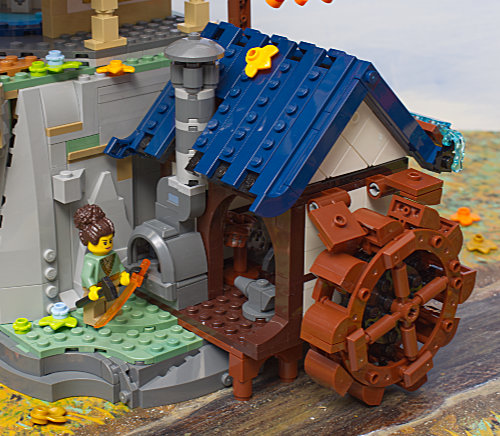
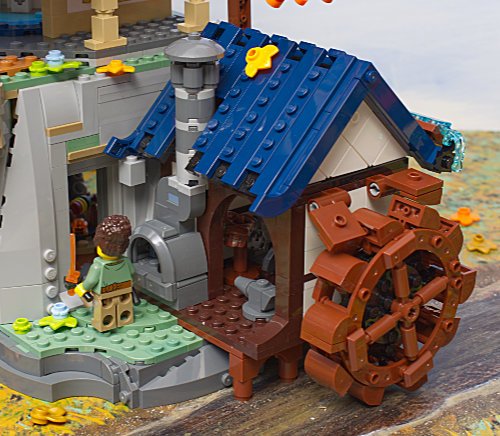
The shop roof is removable, and one does have to dodge the tree above and be considerate of the chimney to achieve clean removal. Inside we find a bed and some personal items.
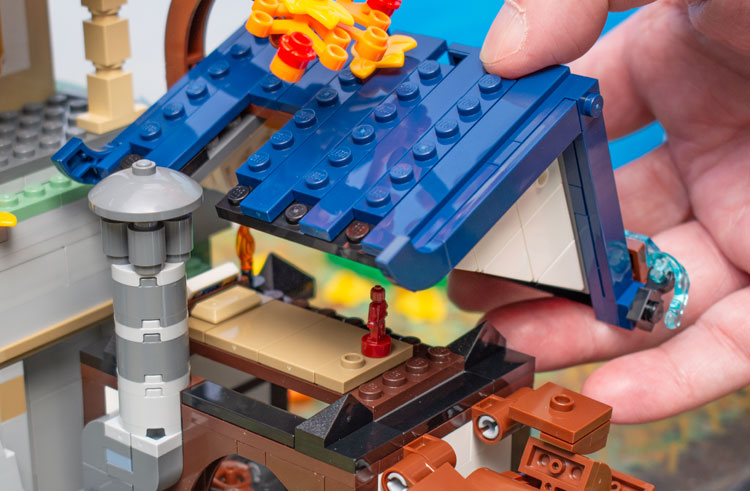
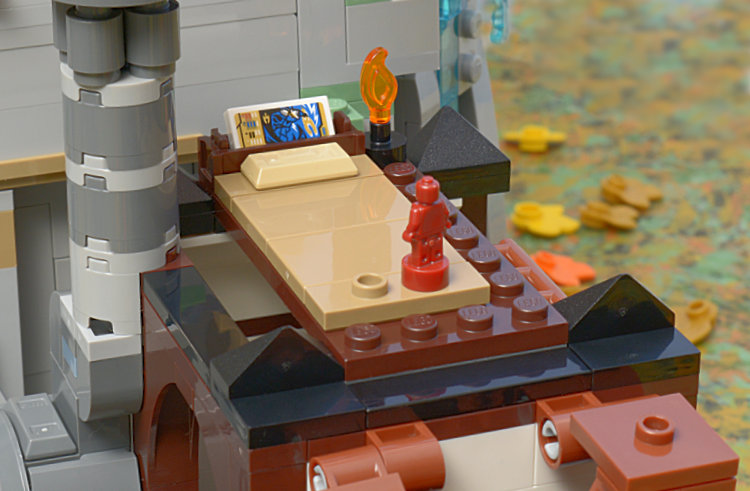
The furnace chimney earns a “what’s this about” with a jog that clearly has more to do with someone flexing their ability to assemble bricks in an unusual manner than it does with anything else. While it gets an acknowledgement of clever assembly and aesthetic flourish, it is unnecessary and results in the portion above it being something less than very secure. One can expect the chimney to fall off some of the time if the roof is either removed or replaced.
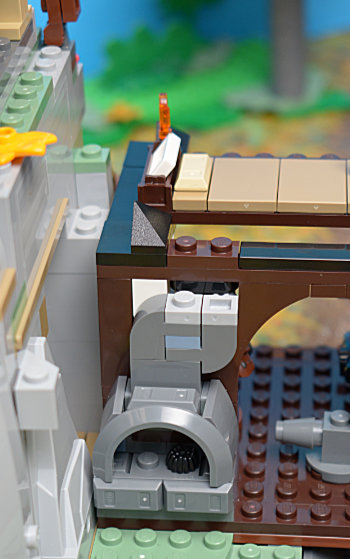
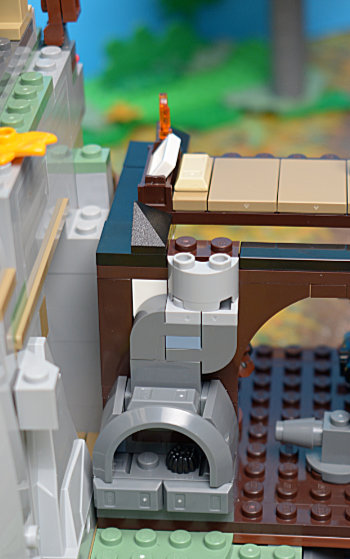
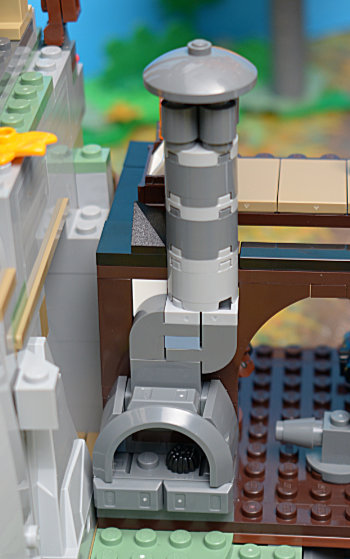
La pièce de résistance of the whole model is the water wheel. There is a handle one can turn which turns gears which turns the water wheel which also turns a cog on the inside of the shop that drives a large hammer on an anvil. The gearing only works in a clockwise direction and there are some flappy stops on the side of the shop to prevent the wheel turning backwards. Turning the wheel backwards would have the unfortunate effect of breaking the hammer assembly on the inside.
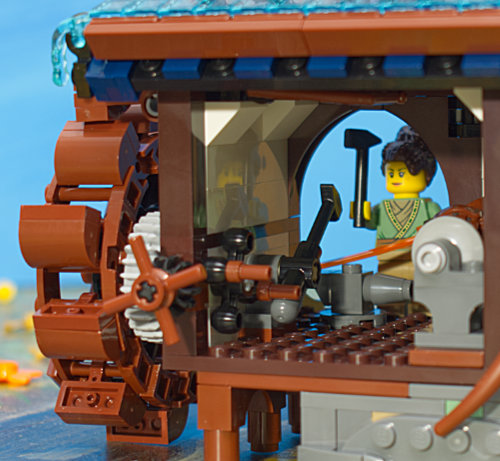
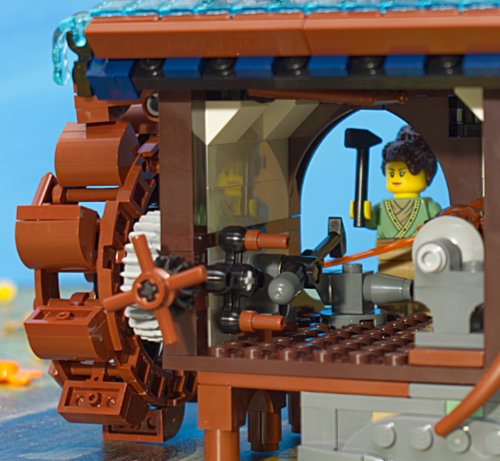
Additional touches inside the shop are a pull-down ladder to access the upper room, a wheel grinding stone, and a piece of armor on a stand.
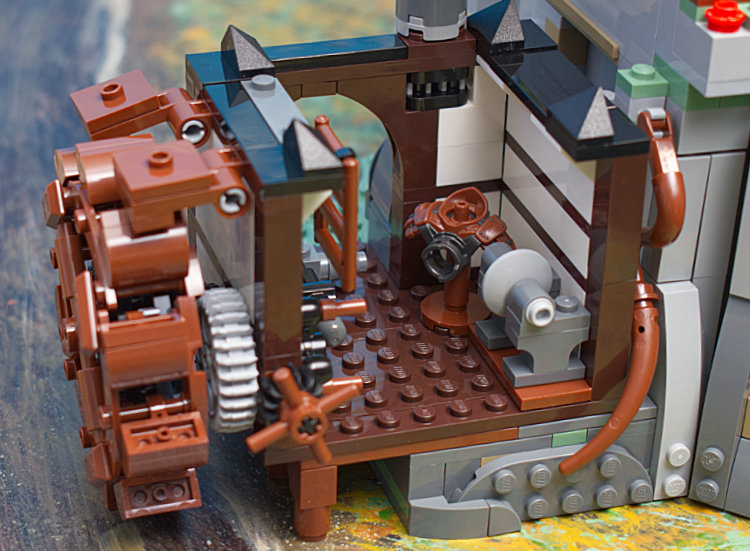
Adding some visual and thematic enhancement to the shop roof is “water” bubbling up outside the temple which is channeled through a gutter to turn the wheel. Note the “water” in quotes. I will again admonish LEGO and everyone else that water is clear and glass cleaning fluid is blue. If one does come across blue “water” I suggest that one does not drink it.
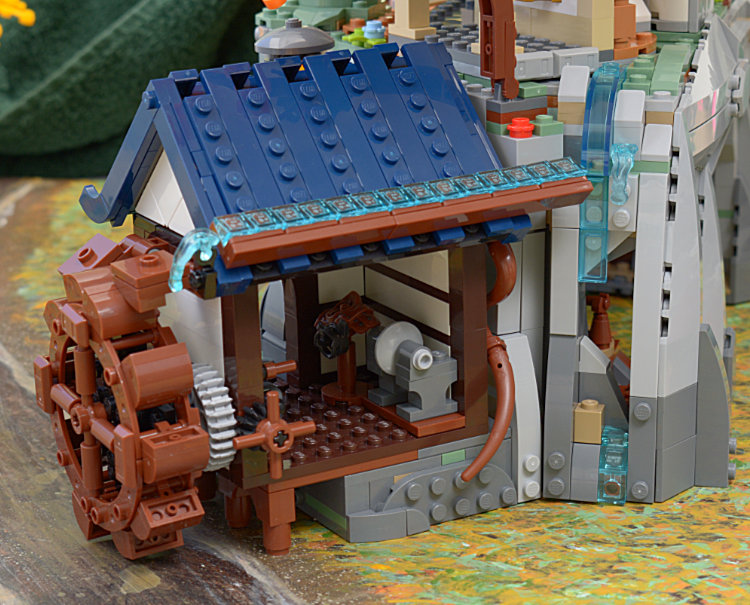
And on a final note: trees. The various trees with their roots projecting from the rocks provide a pop of bright color to an otherwise fairly muted environment.
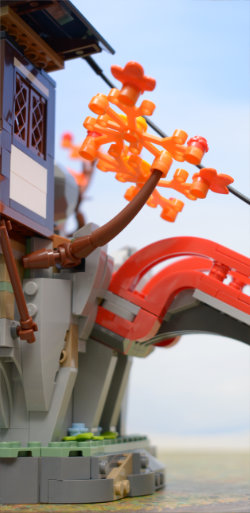
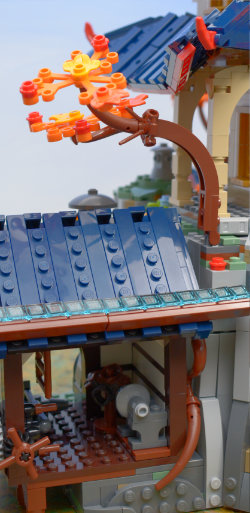
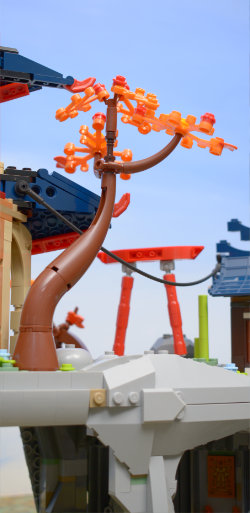
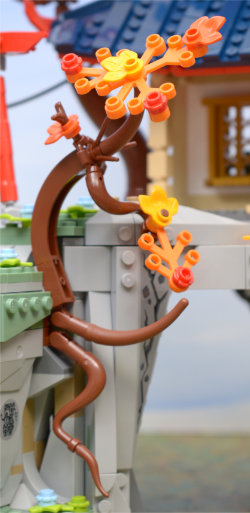
The Randolph T. Fielding Absolutely Administriva Section
Lloyd, Cole, Nya, Roby, Blacksmith, and Zane figures are reusing head part 3626 with previously existing designs. Other standard heads are part 3274.
Stickers
With so much inherent ornamentation in the build it makes sense that the stickers are few.
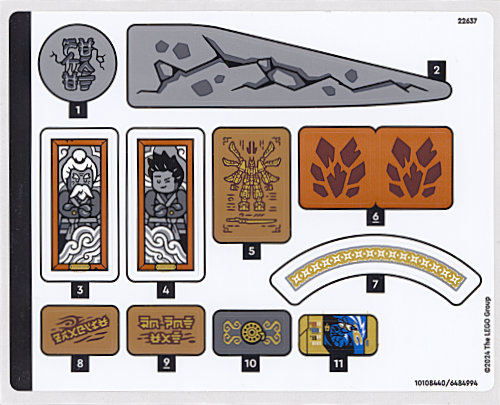
New parts
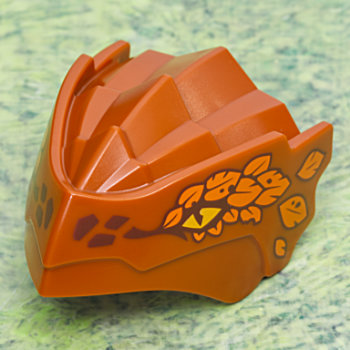
part 4921 in dark orange
Old parts, new colors
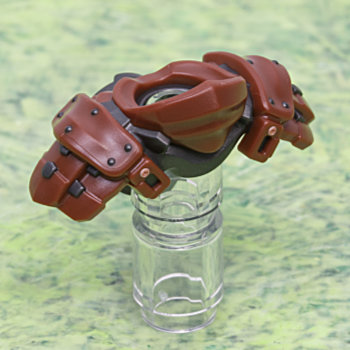
part 4923 (front) in reddish brown and dark pearl gray
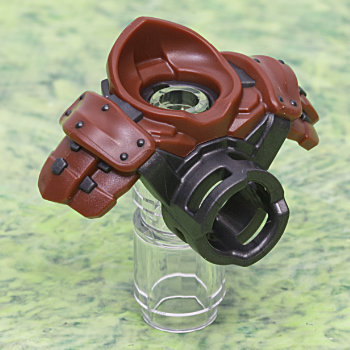
part 4923 (back) in reddish brown and dark pearl gray
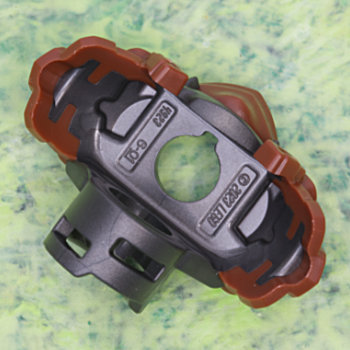
part 4923 (underside) in reddish brown and dark pearl gray
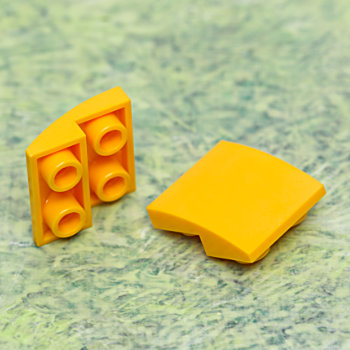
part 32803 in bright yellowish orange
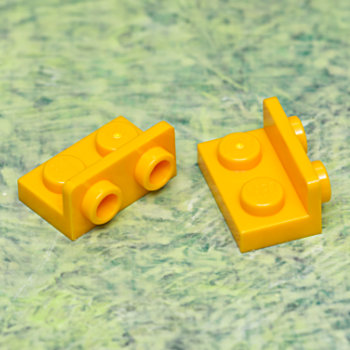
part 99780 in bright yellowish orange
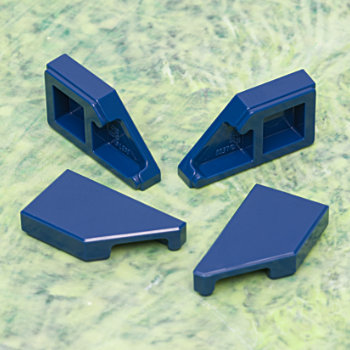
parts 5091 and 5092 in dark blue
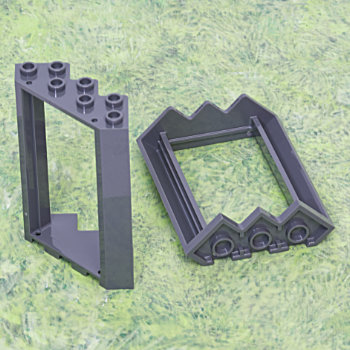
part 99206 in dark bluish gray
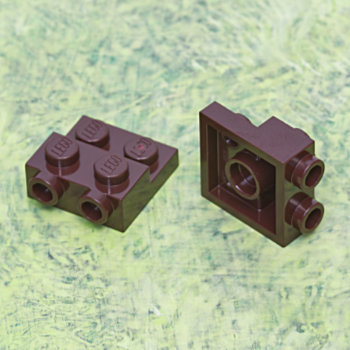
part 99206 in dark brown
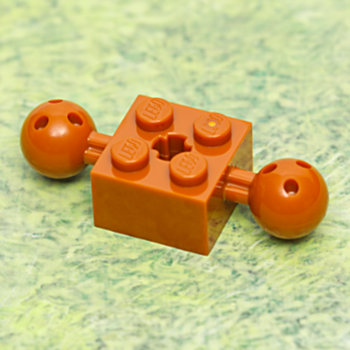
part 17114 in dark orange
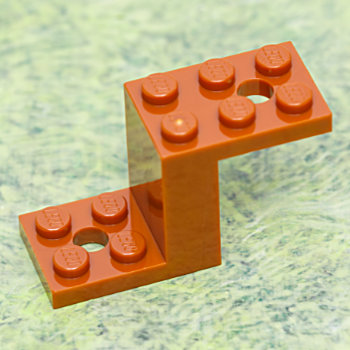
part 28964 in dark orange
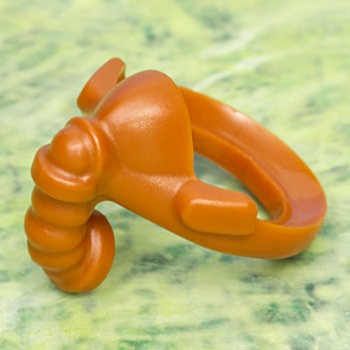
part 39796 in dark orange
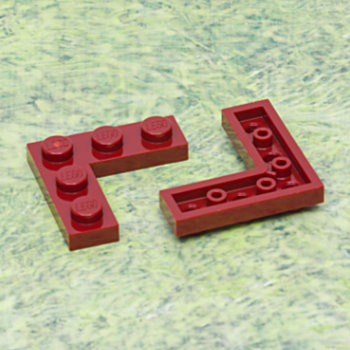
part 77844 in dark red
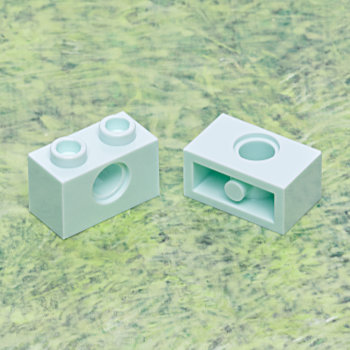
part 3700 in light aqua
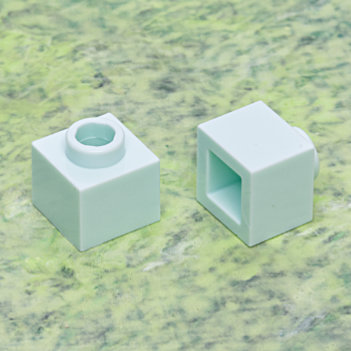
part 86996 in light aqua
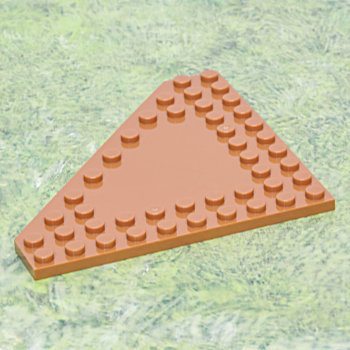
part 92584 in medium nougat
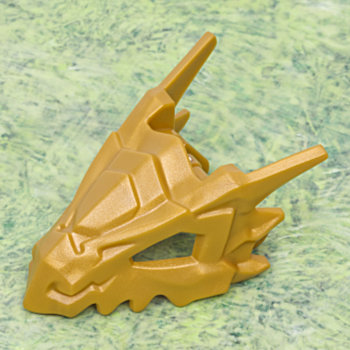
part 3770 in pearl gold

part 64871 in dark red
Old parts, new patterns
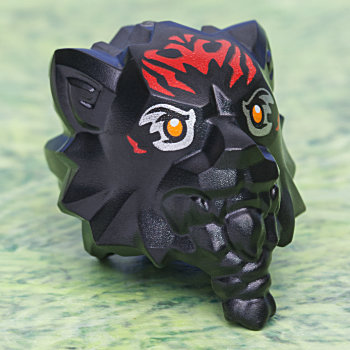
part 4055 in black
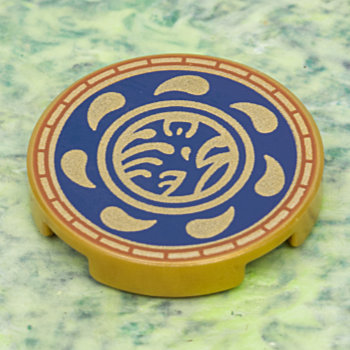
part 14769 in pearl gold
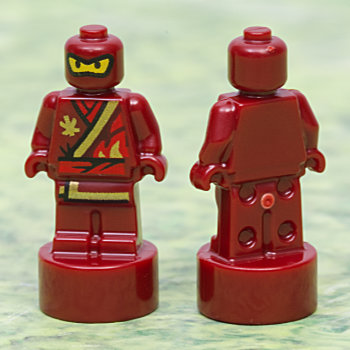
part 53017 in dark red
Summary
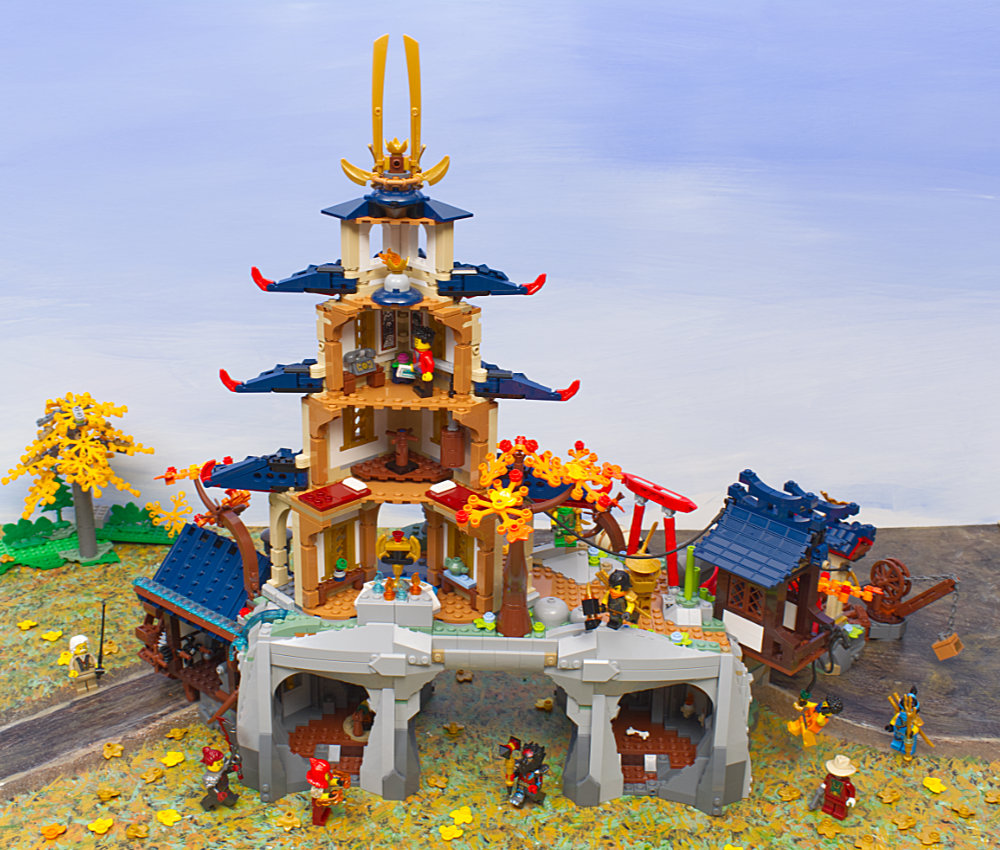
This is a big gorgeous set with many things done well and a handful of mostly little things that could stand further consideration. Absolutely love the dragon and the water wheel mechanism. The set should provide hours of fun in both assembly and fantasy play afterwards.
Disclaimer
Thanks to LEGO for kindly providing the set for review.
33625